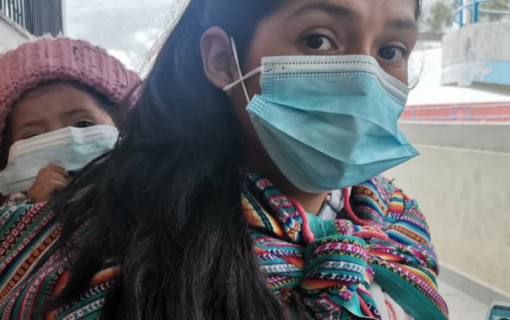Electoral Training Project, Honduras, September to December 1993
EXECUTIVE SUMMARY
The International Foundation for Electoral Systems (IFES) was invited by the Tribunal Nacional de Elecciones (TNE) of Honduras to provide assistance in the area of electoral training. The project was financed by a grant from the Agency for International Development (AID) in Tegucigalpa and included the development of the Canilla Electoral 1993, a training video for poll workers (Miembros de las Mesas Electorales), and the actual training of approximately 73,000 poll workers and approximately 3,000 electoral authorities (Miembros de los Tribunales Depanamentales y Locales Electorales). The training was provided through a sub-agreement with a Honduran company, CADERH (Centro Asesor para el Desarrollo de los Recursos Hunuuws de Honduras).
The TNE made contact with IFES in May, 1993. After an exchange of correspondence and discussions with the TNE and AID/Tegucigalpa, IFES sent a three member team to Tegucigalpa in early August to assess conditions, meet with members of the TNE, define the nature of the assistance, make initial contacts with local companies which would be capable of executing the training sub-agreement, and to derive cost figures for development of the full project budget. The team members were Dr. Medardo Oleas, Vice-President of the Tribunal Supremo Electoral of Ecuador; Mr. Henry Valentino, IFES consultant and audio-visual applications specialist; and Roger H. Plath, IFES Program Officer for the Americas.
Due to the period of time from initial contact between IFES and the TNE to the approval and receipt of project funding between IFES and AID, lack of time became a significant factor in the execution of the project. As soon as IFES was assured in September that project funding was imminent, IFES commenced two tasks simultaneously: selection of a Honduran company through an RFP process to begin preparations for the provision of nation-wide electoral training services, and the development of the Canilla Electoral 1993 and training video.
The IFES-CADERH electoral training project was executed in four phases. The first phase involved the recruitment, training, and selection of the supervisory personnel and the first tier of instructors called instructor-leaders (instructores-lideres) [IL]. 100% of project goals were achieved in this phase. The second phase involved the training of the electoral authorities (Miembros de los Tribunales Depanamentales y Locales). The training was conducted by the IL with support from the supervisory personnel. According to the CADERH final report, 95 % of the target group was trained. The third phase involved the recruitment, training, and selection of the diffusion instructors (instructores difusores) [ID]. This training was also conducted by the IL. According to the CADERH final report, 99% of the target group was trained. The final phase was the training of the poll workers (Miembros de las Mesas Electorales Receptoras). This training was conducted by the ID with assistance from the IL. According to the CADERH final report, 93.5% (65,445 poll workers) of the target group was trained. This number is probably low as CADERH also reported that some ID were required by the political parties to provide "private" training to party members in the evenings (unregistered) and that the parties also prohibited some poll workers from filling out registration forms so that they could remain anonymous until the five days before election day required by the Electoral Law for the release of poll workers' names.
The AID/Tegucigalpa grant also provided funds for the deployment of an international team to observe the November 28, 1993 elections. IFES sent a 12-member international delegation headed by Ambassador Jack Vaughn to Honduras on November 24. Coordination and logistics were handled by Leticia Martinez, IFES contractor; with assistance from Mariela L6pez and Etna Avila, IFES contractors; and Roger H. Plath, IFES Program Officer for the Americas. The delegation had two days of briefings before being divided into six teams of two members each that were deployed to various locations in Honduras. Following the elections, the delegation re-grouped in Tegucigalpa for a debriefing that resulted in the Honduras Election Observation Report which was issued as a separate report and is available from the IFES Resource Center.
Read the Full Report.









